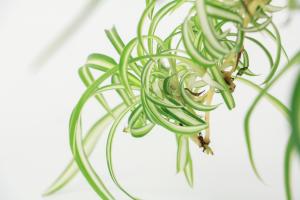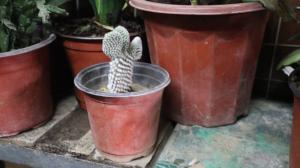Will Tea Tree Oil Get Rid of Plantar Warts?
Plantar warts are small, harmless growths that develop on the sole of the foot. They are caused by a viral infection that enters the skin through small cuts or cracks. While they can often clear up on their own, they can also be stubborn and difficult to get rid of. As a result, many people have turned to natural remedies such as tea tree oil to treat their plantar warts. But does tea tree oil actually work?
The Science Behind Tea Tree Oil
Tea tree oil is an essential oil that is derived from the leaves of the tea tree plant, which is native to Australia. It has been used for centuries as a natural remedy for a variety of ailments and conditions. When it comes to plantar warts, tea tree oil is believed to work in a few different ways.
First, tea tree oil has antiviral properties which can help to combat the virus that causes plantar warts. Second, it has anti-inflammatory properties which can help to reduce redness and swelling associated with the warts. Finally, tea tree oil is believed to have keratolytic properties, which means it can break down the tough, dead skin that often covers plantar warts.
Research on Tea Tree Oil and Plantar Warts
While there have been some studies on the effectiveness of tea tree oil for treating plantar warts, the results have been mixed. One study published in the Journal of Family Practice found that a mixture of tea tree oil and iodine was more effective than just tea tree oil alone at treating warts. However, another study published in the Australian Family Physician found that there was no significant difference between tea tree oil and a placebo when it came to treating warts.
Some anecdotal evidence suggests that tea tree oil can be effective at treating plantar warts, but more research is needed to fully understand its effectiveness.
How to Use Tea Tree Oil for Plantar Warts
If you decide to try tea tree oil to treat your plantar warts, there are a few things you should keep in mind. First, it's important to dilute the tea tree oil with a carrier oil such as coconut oil or olive oil. This will help to prevent skin irritation and sensitivity. Second, apply the diluted tea tree oil to the affected area with a cotton swab or cotton ball. Be sure to cover the entire wart. Finally, cover the area with a bandage or tape to keep the oil in place.
It's important to note that tea tree oil should not be ingested and should not be used on broken or irritated skin. If you experience any side effects such as itching or irritation, discontinue use immediately.
Conclusion
While tea tree oil may have some potential benefits for treating plantar warts, more research is needed to fully understand its effectiveness. If you decide to try tea tree oil, be sure to dilute it properly and use it as directed. If your warts do not improve or begin to worsen, consult a healthcare professional for further treatment options.

 how many times do yo...
how many times do yo... how many planted tre...
how many planted tre... how many pine trees ...
how many pine trees ... how many pecan trees...
how many pecan trees... how many plants comp...
how many plants comp... how many plants can ...
how many plants can ... how many plants and ...
how many plants and ... how many pepper plan...
how many pepper plan...
































